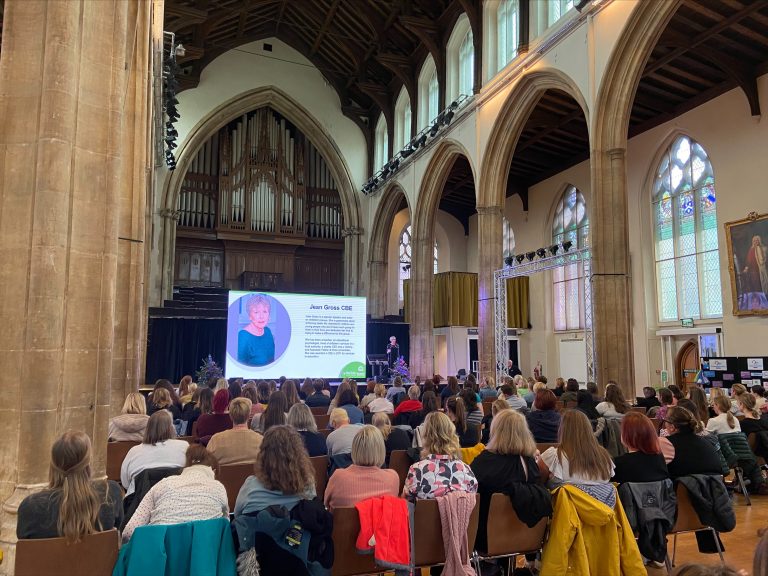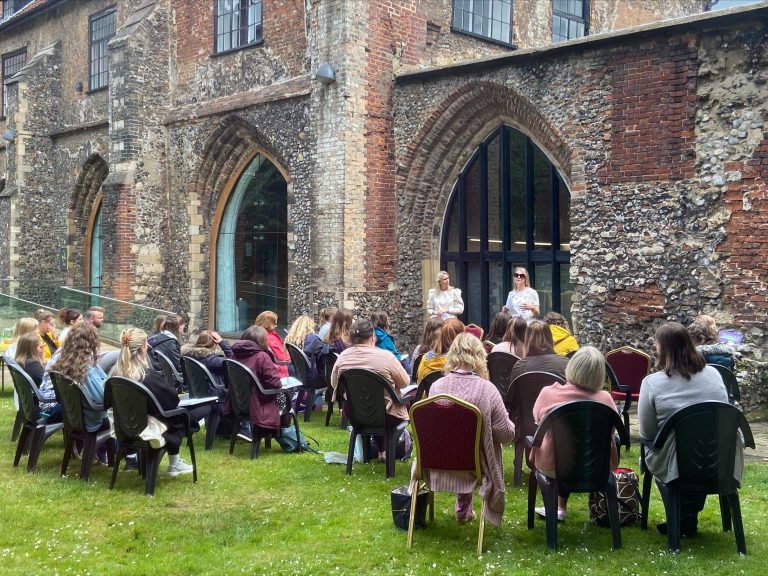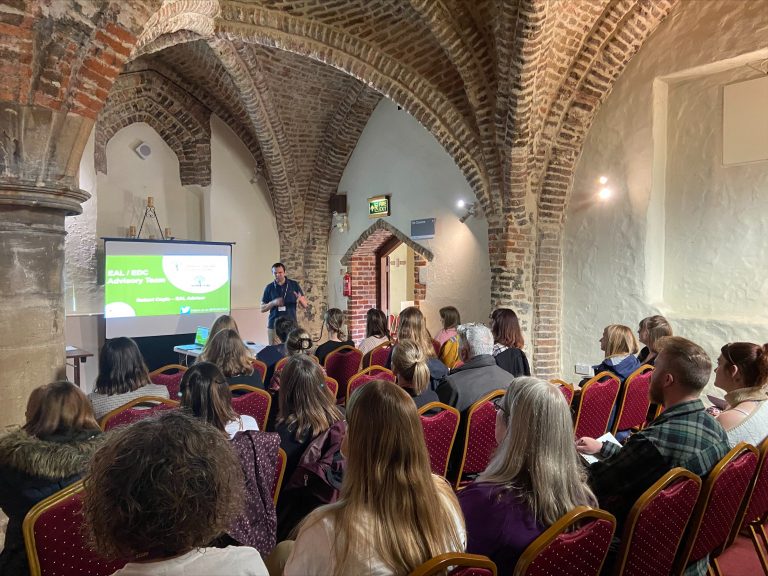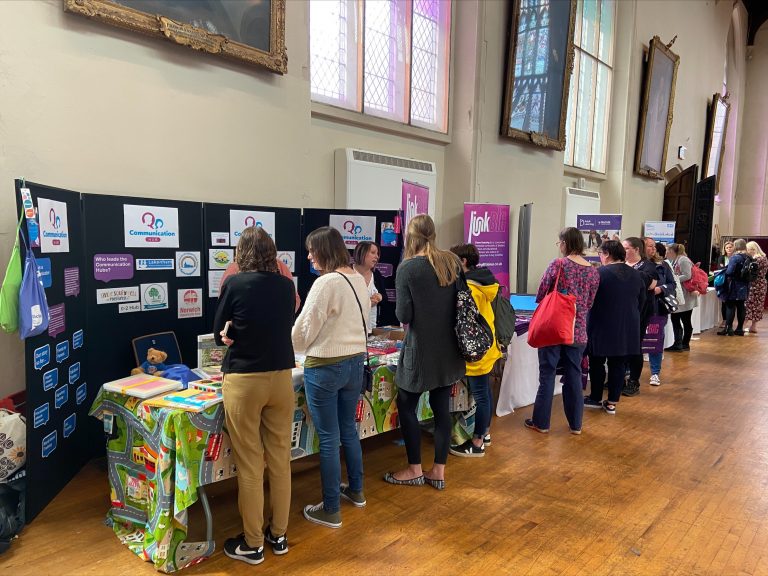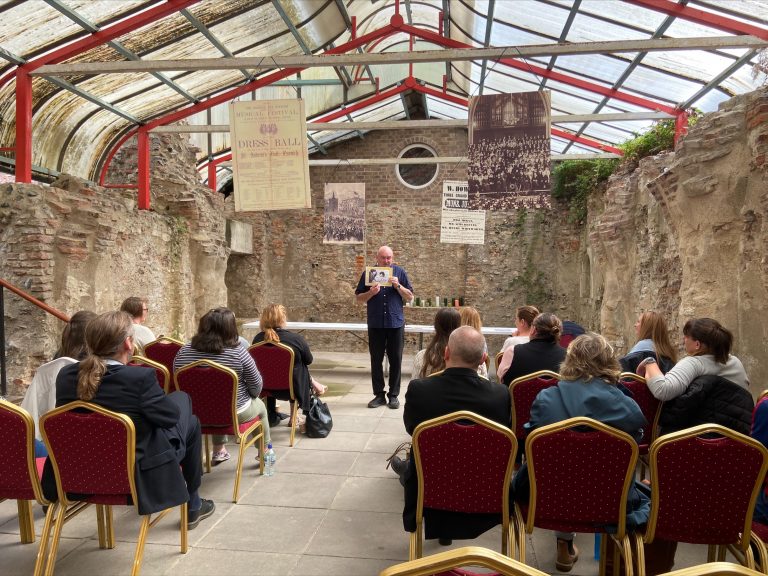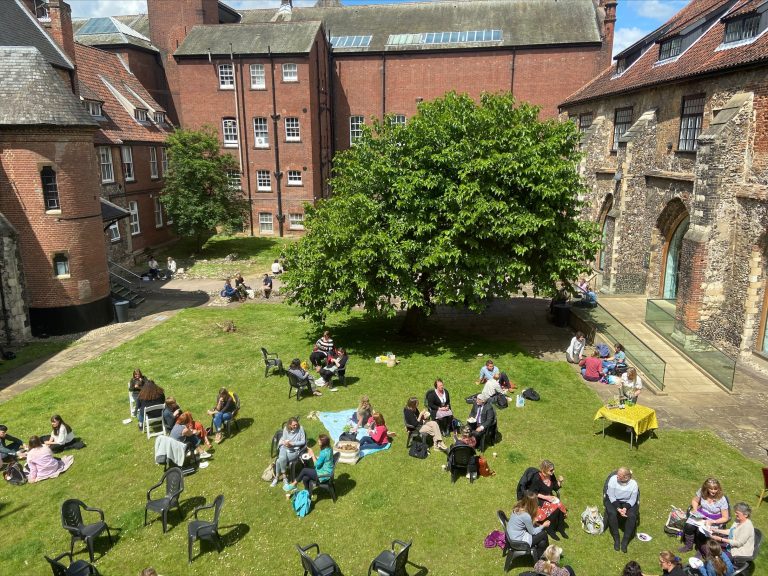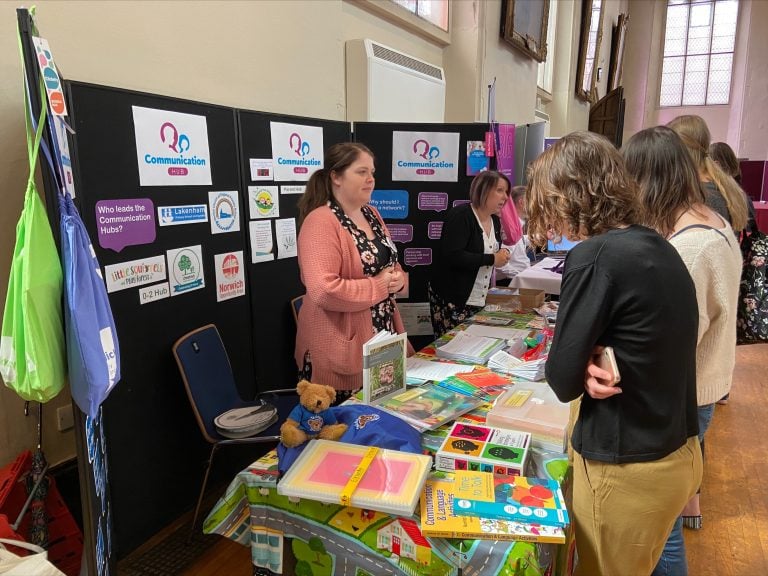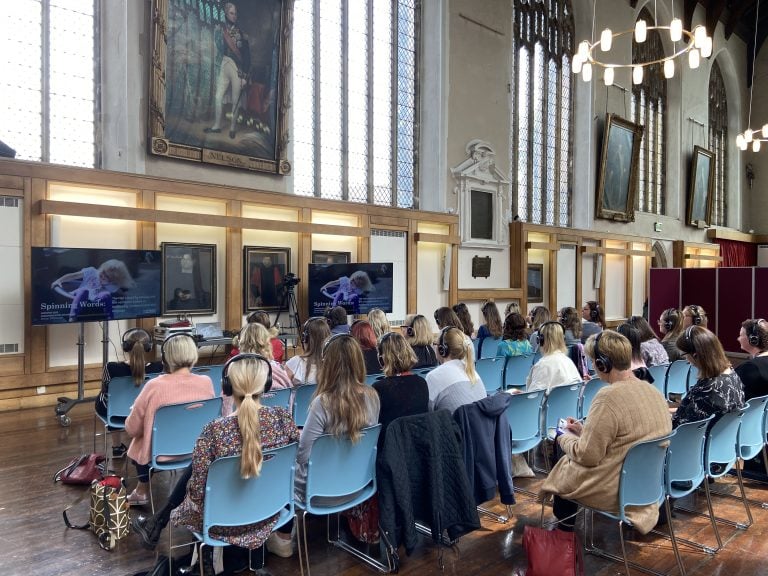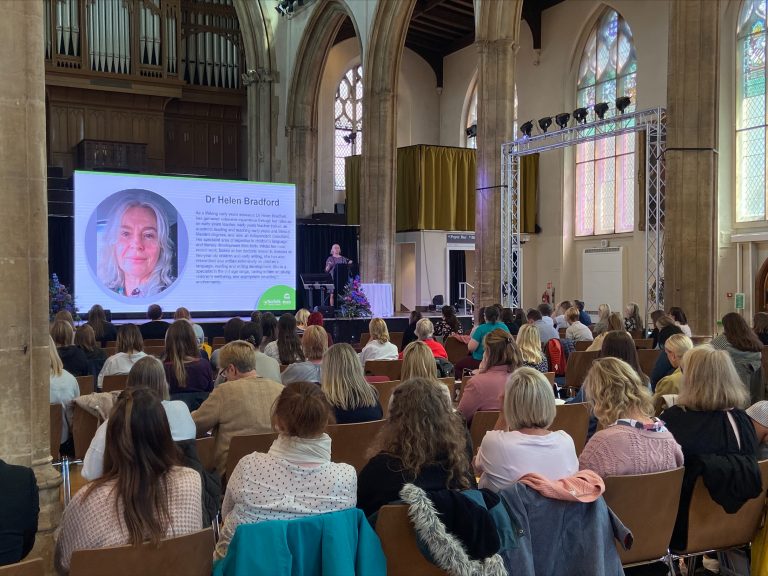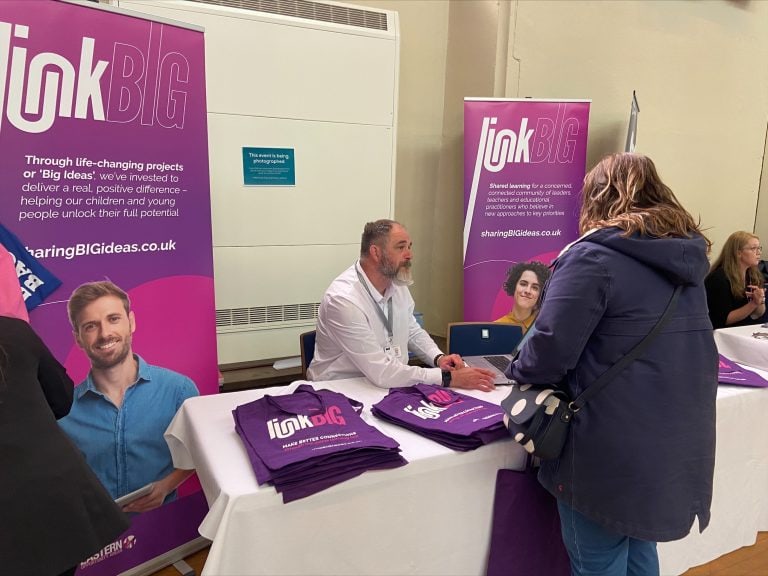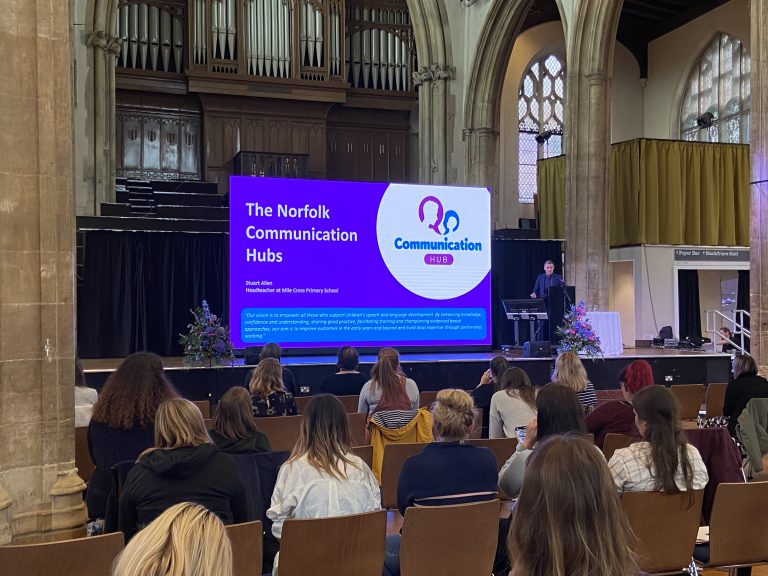For both conferences, the first task was to source a suitable venue that could accommodate 200-300 delegates. We were mindful of finding a venue with sufficient room for breakout spaces, as well as a main auditorium or stage. On top of this, particularly when planning the 2022 conference that was advertised as a county-wide event, we were mindful of choosing a venue that was close to adequate parking facilities and/or several public transport routes.
Once a suitable venue had been found, we then secured an event date that didn’t overlap with any other significant events in the NOA, NCC or school/setting calendars. From here, we drafted our conference agenda, whilst also researching various speakers that had been recommended to us by colleagues and peers. This was the most important aspect of the planning phase, and much time was taken in ensuring that we chose professionals that both had high levels of expertise in their chosen field, as well as experience of giving large-scale presentations. We were also mindful of choosing topics and themes that felt relevant to our mixed audience and we reflected on all conversations we had partaken in during various Communication Champion projects, to help us gradually narrow down our varied list.
As we successfully began to source our keynote speakers, we then looked to fill gaps in practitioners’ knowledge and understanding by planning a range of interesting workshops. We sourced our workshop hosts in the same way as our keynote speakers, allocating them to our available slots.
From here, we focused our attention on finding a caterer and a tech team (where necessary) and advertising our event on different platforms. For both conferences we released a ‘save the date’ flyer around 6 months prior to day and then we released our ‘book now’ flyer around 3 months after that. For both conferences we used the Eventbrite platform for booking and information sharing, and for advertising, we used our pre-established communication channels such as emails, networks, and newsletters. In 2022, we also reached out to some external education groups such as VNET and Educate Norfolk, to help us reach a wider audience.
Our next focus was to organise an array of exhibitors for the event and to design some of our documentation for the day. In 2019, we provided each delegate with a welcome back containing a pen, paper, printed agenda, evaluation form and accompanying information. However, in 2022, in an effort to be more conscientious of our carbon footprint and the environmental impact of mass printing, we decided to go paper-free, only using printed resources where absolutely necessary. To aid this style of working, we made a much greater use of technology (e.g., using QR codes to link to documents such as the agenda and questionnaire) and we offered to share pdf versions of speakers slides after the conference, to relieve delegates of hours of notetaking.
Throughout the planning process, my team and I ensured we booked in regular meetings and checkpoints to help us monitor planning progress. As much of the work happened simultaneously, we often took responsibility for our own areas of work so as to avoid duplication. Time management and organisation skills were critical for this project, as was the ability to manage a range of competing priorities.
Overall, both conferences were very well received by the delegates, and this is reflected both in the feedback we’ve received and the levels of attendance at both events.
